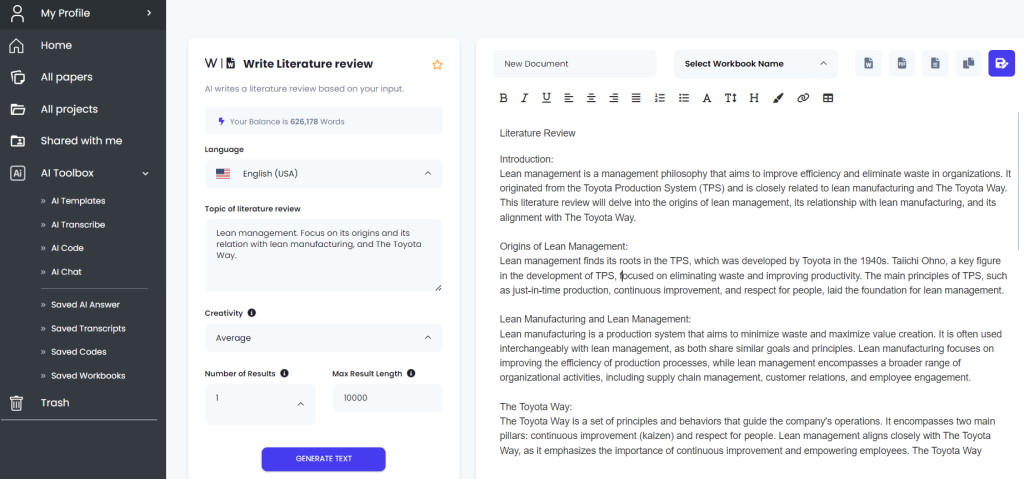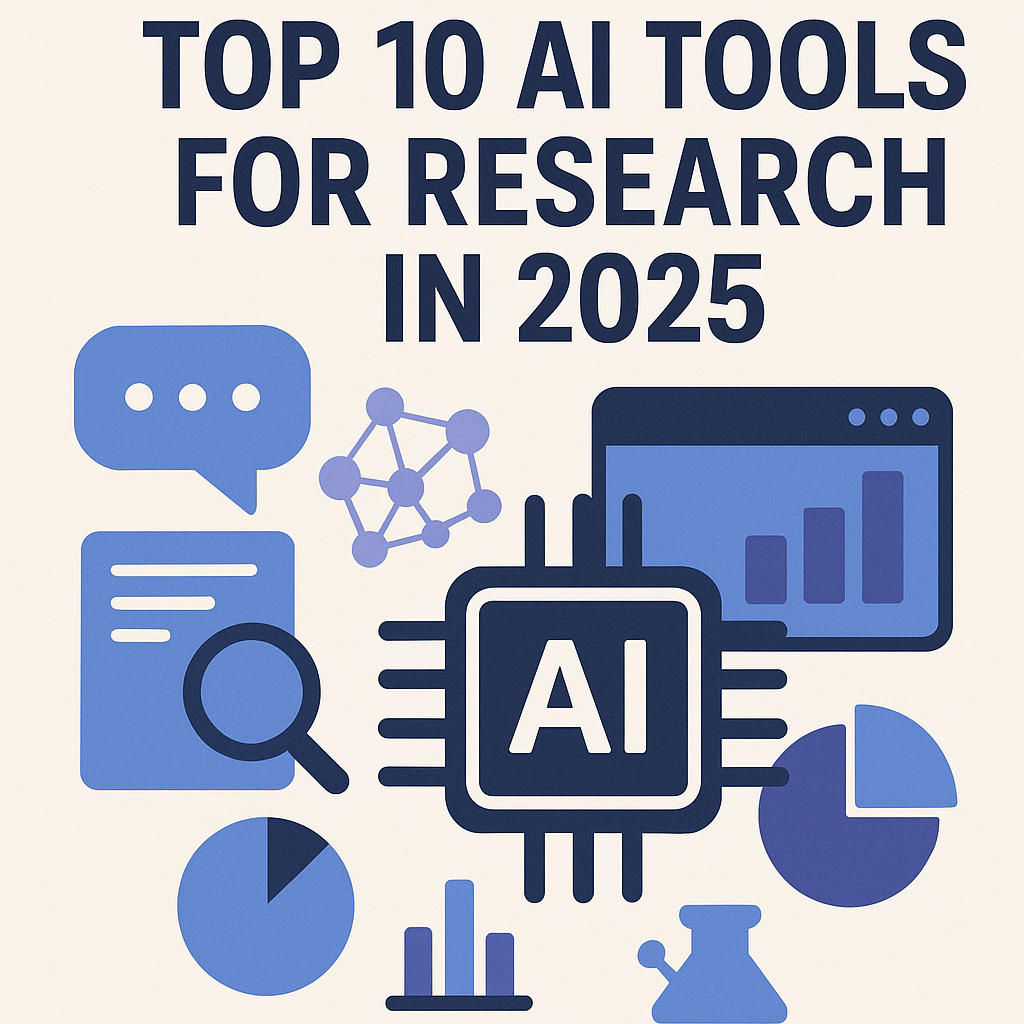The academic world is experiencing a profound transformation, fueled by the rapid advancements in Artificial Intelligence. AI is no longer a distant promise; it’s a tangible asset reshaping research methodologies today. For academics navigating complex data, vast literature, and the pressure to publish, AI tools offer unprecedented support. They streamline workflows, enhance analytical depth, and accelerate the path to discovery. If you want to stay ahead in 2024, integrating AI into your research process is essential. Here are 10 powerful AI-driven tools leading the charge:
1. Avidnote: The Integrated & Private AI Research Hub
Avidnote goes beyond the limitations of single-function AI tools. It acts as a comprehensive AI research assistant, designed to support academics through the entire research lifecycle securely. More than just an AI writer, Avidnote uses artificial intelligence to help you read smarter, analyze deeper, and connect ideas across your sources, all within a private environment.
Key features include:
- AI-powered summarization of complex papers.
- Write with AI, edit and revise your drafts in real-time.
- Analyze both qualitative and quantitative data with AI
- Intelligent note-taking that links concepts across documents
- AI-assisted writing and content generation built upon your private research notes.
- A unified platform to manage literature, notes, and drafts seamlessly and securely.

Avidnote provides an AI-driven research ecosystem where your data remains private, streamlining everything from initial literature review and analysis to final manuscript drafting.
Click here to register for a free account, or click here to read more about Avidnote.
2. ChatGPT (OpenAI): Versatile AI Assistant (Use with Caution)
ChatGPT has become a household name for its ability to generate human-like text, brainstorm ideas, explain concepts, and even draft outlines or code. It can be a useful tool for researchers for initial topic exploration, overcoming writer’s block, or rephrasing complex sentences.
- Important Caveat: By default, interactions with standard ChatGPT are not private and may be used for training data. Crucially, researchers should avoid inputting sensitive, unpublished, or proprietary research data. This contrasts sharply with platforms like Avidnote, which are designed to keep user research data private. Always verify ChatGPT’s outputs, as it can sometimes generate plausible but inaccurate information (“hallucinations”).
3. Keenious: Intelligent Literature Discovery
Move beyond tedious keyword iterations. Keenious acts like a research radar, understanding the concepts within your work. Upload a draft, outline, or even a list of relevant papers, and Keenious’s AI analyzes the text to recommend highly relevant articles you might have missed. It excels at uncovering hidden connections and suggesting new avenues for exploration based on the core ideas of your project.
4. Elicit: AI-Powered Research Assistant for Literature Reviews
Elicit focuses on automating time-consuming research tasks, particularly literature reviews. This AI research assistant searches a curated database of academic papers, synthesizes findings, extracts key data points, and summarizes information relevant to your specific questions. Trusted by researchers at top institutions, Elicit helps you quickly grasp the state of knowledge on a topic and gather evidence efficiently.
5. Research Rabbit: Visualizing Research Networks
Dubbed “Spotify for Papers,” Research Rabbit offers a visually intuitive way to explore the academic landscape. Add a few key papers, and it maps out citation networks, suggesting related articles, authors, and earlier/later work. Its interactive graphs make exploring connections engaging and help you build comprehensive literature collections collaboratively or individually. It’s excellent for understanding how research fields evolve.
6. Scite: Contextual Citation Analysis
Don’t just count citations; understand their context. Scite uses AI to analyze how research papers cite one another. Its “Smart Citations” indicate whether a citation provides supporting evidence, contrasting results, or simply mentions the work. This provides invaluable insight into the credibility, influence, and scientific discussion surrounding a paper, helping you critically evaluate sources.
7. ChatPDF: Conversational PDF Interaction
Unlock the knowledge trapped in your PDF library. ChatPDF allows you to “talk” to your documents. Upload a PDF, and you can ask questions, request summaries, or extract specific information in a natural, conversational way. With multi-language support, it breaks down barriers and makes dense research papers more accessible and digestible.
8. Scopus: Comprehensive Bibliometric Analysis
Scopus is a massive abstract and citation database of peer-reviewed literature. While a powerful search tool, its strength also lies in its analytical capabilities. Researchers use Scopus to track citation trends, analyze research impact (h-index, field-weighted citation impact), identify potential collaborators, and gain a high-level overview of research output across institutions and disciplines globally.
9. Consensus: Aggregating Scientific Findings
Need a quick, evidence-based answer derived from multiple studies? The Consensus app uses AI to search and synthesize findings from millions of peer-reviewed papers. Ask a research question (e.g., “Does mindfulness reduce anxiety?”), and Consensus provides concise answers backed by aggregated scientific evidence, highlighting the general agreement in the field. It’s ideal for quickly getting up to speed on established knowledge.
10. Rayyan: AI-Assisted Systematic Review Screening
Rayyan is a specialized web application designed specifically to accelerate the screening phase of systematic literature reviews. Researchers upload their search results, and Rayyan provides a platform for efficiently screening titles and abstracts, often with AI assistance to prioritize potentially relevant studies. It excels in collaborative review projects, offering features like blinding and conflict resolution, streamlining a notoriously time-consuming part of the systematic review process.
Choosing Your AI Research Toolkit
The best AI tools for you depend on your specific research stage, needs, and workflow. Consider:
- Primary Function: Do you need help with brainstorming (ChatGPT – with caution), discovery (Keenious), analysis (Elicit, Scite), systematic review screening (Rayyan), or an integrated workflow?
- Data Privacy: Is your research data sensitive? Prioritize tools explicitly designed for privacy like Avidnote.
- Integration: Does the tool work well with your existing software?
- Ease of Use: How steep is the learning curve?
- Scope: Does it cover your specific discipline or task effectively?
Conclusion: Synthesizing Power with a Unified, Private Solution
The AI revolution offers potent tools for academic researchers. ChatGPT provides versatile assistance (remembering the critical privacy caveat), Keenious and Research Rabbit enhance discovery, Elicit and Consensus synthesize knowledge, Scite adds citation depth, ChatPDF improves document interaction, Scopus offers vital bibliometrics, and Rayyan streamlines systematic review screening.
However, relying solely on a collection of specialized, disconnected tools introduces friction and potential data security risks. Managing separate platforms for brainstorming, literature screening, analysis, note-taking, and writing fragments the research process. Furthermore, the default lack of privacy in general AI tools like ChatGPT poses a significant risk for sensitive academic work.
This is where Avidnote distinguishes itself. It uniquely integrates AI-powered reading, deep analysis, interconnected note-taking, and AI-assisted writing support within a single, secure, and cohesive platform. By prioritizing user data privacy while bridging the critical gaps between discovering, reading, analyzing, synthesizing, and writing, Avidnote offers the most comprehensive and private AI-driven ecosystem tailored for the complete academic research journey. For researchers seeking to harness AI’s power efficiently, effectively, and securely, Avidnote provides the unified solution needed to excel in 2025 and beyond.


